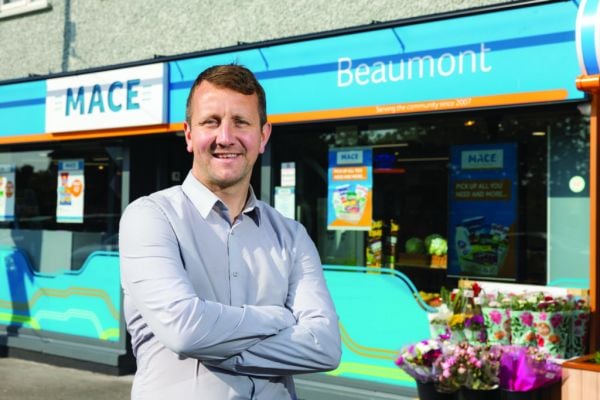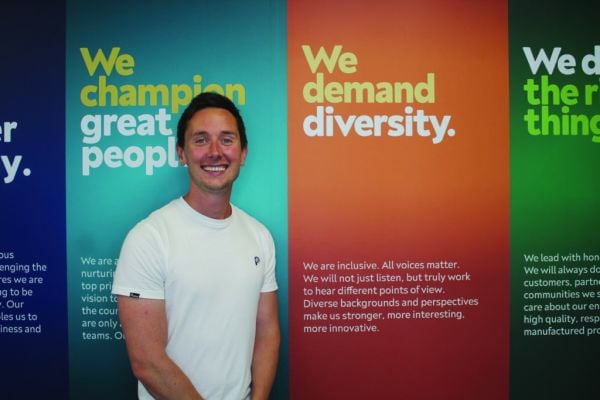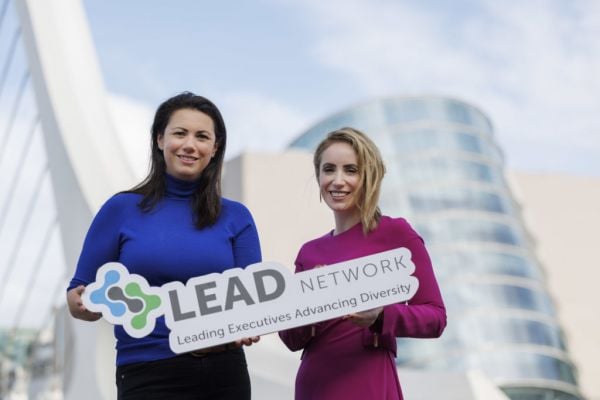In the second of a series of articles by the LEAD Network Ireland Chapter, in partnership with Checkout, Jane McEvoy, marketing manager at Musgrave and LEAD Network Ireland Chapter co-chair, introduces us to her colleague Andrew Keating, CFO of the Musgrave Group, who talks about supporting female talent and being an advocate for gender equality.
Allyship is one of the most important factors to advance female leadership and diversity within the workplace, but it is a verb not a noun, so being an ally means syncing what you are saying with your actions. Andrew Keating, CFO, Musgrave Group and Gender Employee Resource Group executive sponsor, is one of those people who brings allyship to life for me and for so many other individuals in Musgrave and in his previous company, Bank of Ireland.
He does this without ever seeking praise or recognition, but because he genuinely thinks it is the right thing to do. We all have good intentions, but it can be challenging to know where to start, so Andrew is going to share some of his tips on how to be an ally in your business.
Supporting female talent to thrive
I have found that taking the time with colleagues to understand and clarify their ambitions, to help them identify any challenges, and to explore the opportunities and strategies that exist to address these challenges, are vital first steps in the initial process of engagement and support.
In my experience, believing in and encouraging colleagues with a ‘why not?’ philosophy or ‘what would have to be true to make this happen ?’ mindset is always helpful. The engagement provides me with the framework to subsequently act more effectively as their coach, mentor and advocate.
As the individual is then top of mind for me, I can more easily invest time and energy in looking out for and making suitable connections across my network. In addition, I work to identify suitable opportunities to prompt my colleague to take steps towards realising their ambitions.
Advocacy for gender equality
I try to be a clear, consistent and natural supporter of gender equality across my professional and personal life. At times, this can include making formal speeches, supporting workshops and, of course, publicising my support for gender equality on social media channels. Demonstrating an authentic and consistent support for gender equality has increased my leadership influence and impact within my organisation.
As more and more colleagues – both male and female – become clear on my commitment to this agenda, it has enabled me to be a positive influence and force for change in this regard.
I am delighted to be the executive sponsor for the Gender Employee Resource Group in Musgrave and I regularly post supporting material on LinkedIn in order to help create a supportive environment that others can participate in.
Embedding gender equality in operating processes
While good intention is always a positive, it is equally important to amplify and embed gender equality into our processes. There are a number of examples of where this has worked effectively for me in the past.
At a recruitment level, there are lots of opportunities: investing the effort to ensure job descriptions do not demonstrate gender biases (either conscious or unconscious), insisting that long lists and short lists include all genders, as well as having a balanced panel of interviewers.
When considering recommendations for promotional salaries, I always insist on receiving and reviewing a benchmark analysis of remuneration packages for equivalent roles split between male and female colleagues – just to make sure that the recommendations are appropriate.
Another practical tip that I have found useful when submitting/approving success charts is to analyse the proportion of male and female colleagues on those succession charts. Where an appropriate balance is not present, the charts are sent back for further work and development.
While embedding these steps and challenges into processes can initially feel new or different, in my experience they have quickly become more natural and mainstream. It is evident to all that they are mechanics to support equality for all individuals.
Read More: Mentorship Series #1: What I Learned About Navigating Maternity Leave
If you work in the retail or CPG industry and want to hear more about how to help women rise, sign up to become a member of the LEAD Network. It is completely free and there are no hidden catches or obligations: https://leadmembers-eu.net/signup









